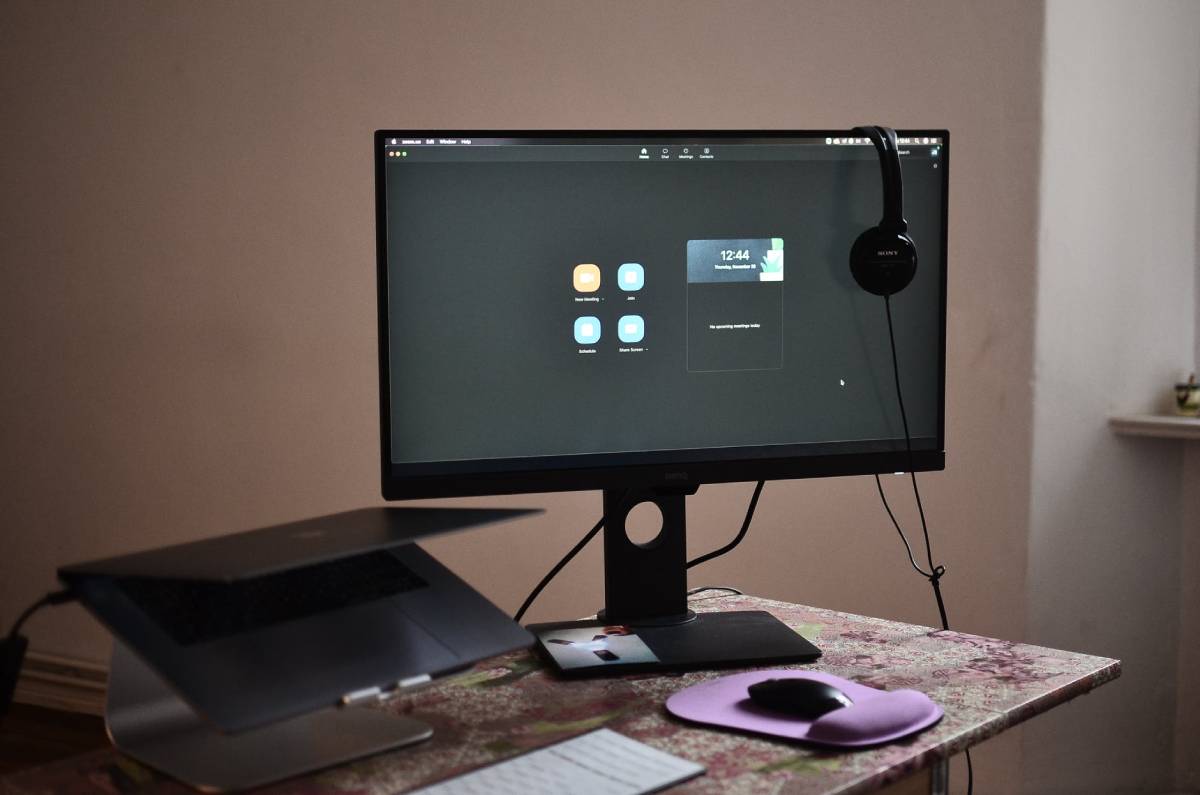We all can agree that mobile devices are taking the industry by storm. Various latest information proves that more than 50% of the total internet traffic comes from mobile devices itself. However, it is challenging to verify the proper performance of your apps on a wide range of mobile devices and operating systems. This is exactly what Selenium mobile testing aims to solve.
Struggling with Selenium mobile testing? Don’t worry! Our article will guide you through this. This guide will help you combine Selenium with Appium for executing automated mobile testing. We will also help you understand the overall architecture, setup, advanced features, and all the best practices related to this process.
Why Appium
You might ask, when we are talking about Selenium mobile testing, why are we integrating Appium? In simple terms, Selenium cannot natively execute mobile application testing. So, you have to integrate it with other tools like Appium for this process.
Why Appium? It is one of the most effective tools when it comes to automated mobile testing. It will also let you perform the test cases on multiple mobile operating systems like Android, iOS, and even Windows. Appium also supports various mobile apps like native apps, hybrid apps, and mobile web apps.
The most beneficial feature of this tool is that it shares the same API and WebDriver protocol for the entire application testing process. Let us divert our attention to some of the other major features of Appium:
- As we mentioned before, it supports both Android and iOS devices, which allows you to perform automated cross-browser testing with this tool. It is also a suitable option when you’re trying to implement a diverse testing environment.
- For executing the testing processes, Appium will not ask you for any access to the app source code. Therefore, it is one of the best options for testing third-party applications or other proprietary indications.
- Appium is very flexible and lets you write your automation test script in any of your preferred programming languages like JavaScript or Ruby.
- Since Appium is completely open-source, you do not have to pay for any licensing fees to use it. You also have a huge community which is always ready to assist you with any obstacle.
- Finally, with Appium, you will have multiple extensions and plugins to further improve the functionality of the testing infrastructure. This is one of the most useful options when you’re working with modern, complex mobile apps.
The Architecture of Appium
The primary architecture of Appium adopts a client-server model, which helps improve the scalability and flexibility of the test environment. Let us now divert our attention towards some of the major components of the Appium architecture:
- The Appium server is the core of the entire architecture and is built on node.js. This component is responsible for receiving the user commands from the client libraries and then communicating them with the respective platform’s automation framework.
- Next comes the client libraries, which allow the testers to write the test scripts in their preferred programming languages. These client libraries will also communicate with the Appium Server using the WebDriver protocol.
- You also have automation frameworks, which include XCUITest for iOS and UIAutomator2 or Espresso for Android.
- Lastly, comes the device under test component, which includes the physical or virtual device where the application is being tested.
Setting Up Appium For Mobile Testing
Before we start executing Selenium mobile testing with Appium, you need to follow a few prerequisites to ensure that your testing infrastructure is completely prepared for this process:
- Begin by installing and configuring the JDK for Java-based automation scripting.
- You also have to install node.js to run the Appium server on your testing system.
- You will require Android Studio for Android testing, as it will provide the necessary SDKs, emulators, and other tools.
- In case you are targeting iOS testing, you will require XCode to natively emulate the iOS applications.
- To run the actual test cases, you will either require a testbench of physical mobile devices or emulators that can replicate these behaviors.
- Finally, you’ll also require the Selenium WebDriver bindings for your chosen programming languages.
After you have configured all the above steps, you need to move on to the Appium installation process. For this, you simply have to go through the steps that they have given below:
- To install Appium, you can use the npm package installer. By using the code mentioned below, you can complete the installation process:
npm install –g Appium
- We also suggest the developers to verify the installation process to ensure that all the required components and libraries have been integrated properly. The following code will help you achieve this goal:
Appium –v
- You can use the “appium” code to launch the Appium server for beginning the testing process.
- The final step in this process is to install the Appium Inspector, as it will help you identify the elements in the mobile application. Although it is an optional step, we suggest the developers to go through it as well.
Configuring Desired Capabilities
You can use the desired capabilities option to define the session’s behavior and specify device, platform, and application details. To further help you understand this step, we have mentioned a sample code snippet with an example configuration:

Writing Your First Mobile Automation Test Script With Appium And Selenium
Now that you have finished the prerequisites, the installation process, and also configuring your desired capabilities, you are completely prepared to write your first automation test script with Selenium and Appium. To shed more light on this segment, we have mentioned a Python-based script.
This test script will help you launch a sample application, perform a login operation and also validate it with the success message.

Advanced Techniques And Features
When it comes to Selenium-based mobile application testing with Appium, you will have access to various advanced techniques and features which will further help elevate the overall efficiency and productivity of the testing infrastructure.
Parallel Testing
Both Appium and Selenium allow parallel testing to run multiple test cases on different devices and configurations at the same time. To implement this process, you will need to use the Selenium-based component, the Selenium Grid. It will help you configure multiple nodes for each device and speed up the test execution process.
Cloud Testing
It is a very expensive and time-consuming process to set up and maintain a physical device lab. You can easily eliminate this process while retaining the same efficiency by using remote test labs that are available through cloud servers.
LambdaTest is one such platform that helps you implement cloud-based mobile website testing through remote device farms. At its core, LambdaTest is an AI-powered test orchestration and execution platform that lets you perform manual and automation testing at scale with over 3000 real devices, browsers, and OS combinations.
Testing Hybrid Applications
While you’re working with hybrid applications, they will require context switching between native and web views to implement efficient element handling. In this context, you can use “driver.contents” method to handle multiple contents efficiently.
Image Recognition
When you are implementing image recognition for Selenium testing with Appium, you will encounter certain scenarios where traditional locators might fail. In such a case, Appium supports image recognition-based element identification using third-party libraries like OpenCV.
Performance Testing
To integrate performance testing with Appium, you can use various third-party tools like Firebase or Perfetto. These tools will help you monitor and analyze the application performance during the testing process. It is a very important parameter to ensure that the application can withstand its performance claims in a real-world scenario.
Custom Commands
Finally, the testers can extend the capabilities and functionalities of Appium by defining custom commands for handling complex and application-specific operations. These comments will help you handle various specific requirements that are custom to your application needs.
Best Practices For Selenium Mobile Testing With Appium
Finally, let us go through some of the best practices for Selenium mobile testing with Appium. All these practices have been carefully chosen so that they can enhance your testing capabilities while not complicating the overall infrastructure:
- We strongly recommend the testers to organize the test scripts and test configurations in specific order so that you can implement better maintainability.
- It is a good practice to implement Page Object Models to separate the test logic from the user interface element locators. Using this approach, you can massively enhance the usability and readability of the overall testing data.
- As we already mentioned earlier, testers must use cloud-based device platforms like LambdaTest to access a wide range of devices and operating systems without going into the hassle of a physical device lab.
- It is very important to ensure that Appium, Selenium WebDriver, and all the other platform SDKs are up to date. This practice will help you avoid any form of compatibility issues during the test execution process.
- While working with dynamic elements on your mobile web application, you must use Selenium’s native Explicit Waits. This method will automatically pause the test execution process until the respective element becomes visible and intractable.
- Finally, we recommend the testers to configure logging to capture the detailed test execution logs. All the data captured by these logs will help you debug and analyze the performance of the application.
Future of Selenium Mobile Testing With Appium
With the continuing dominance of artificial intelligence on machine learning, the integration of Appium and Selenium will also adopt these practices to help you in test creation and test maintenance.
In the coming years, the testers will have access to various features like self-healing locators and predictive analytics. All these integrations will help you reduce the test maintenance overhead. Moreover, you will also see advancements in cloud testing technology solutions to further improve the capabilities of Appium in Selenium mobile testing.
The Bottom Line
Based on all the factors that we put forward in this article, we can safely say that mastering Selenium mobile testing with Appium will require a combination of technical knowledge and strategic planning. During this process, you should also abide by multiple best practices to ensure the proper productivity of the overall testing infrastructure.
From setting up a robust testing environment to using advanced features, Appium will help you deliver high-quality apps across multiple platforms and devices. With the continuing evolution of the mobile industry, Appium and Selenium will adapt themselves so that your testing environment will remain prepared for all the upcoming challenges in the segment of automation testing.













